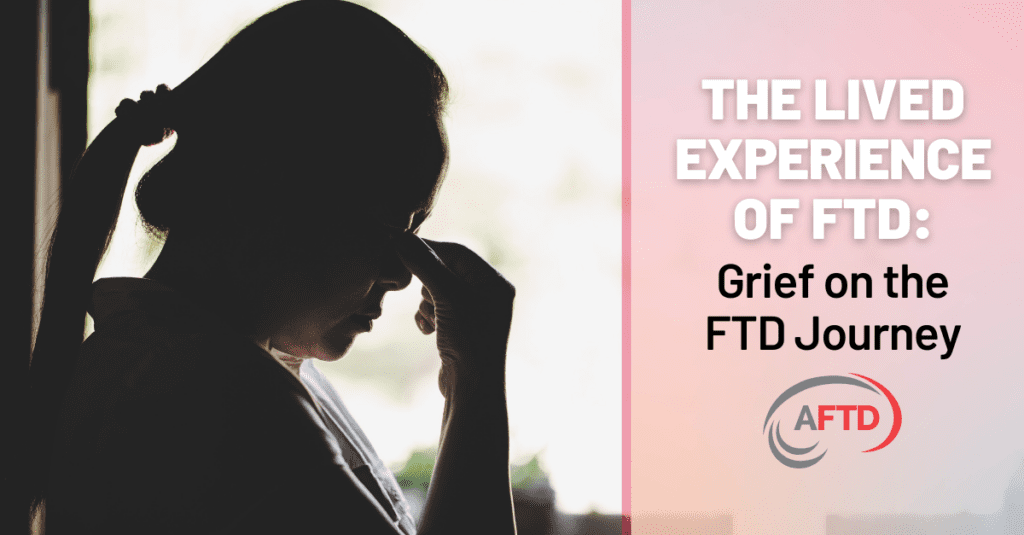The Lived Experience of FTD: Grief on the FTD Journey

The definition of grief is “a keen mental suffering or distress over affliction or loss; sharp sorrow; painful regret.” Grief is more than a feeling. The four recognized emotions are: sad, glad, mad, and scared. Note that sadness is just one component of grief; grief is so much more profound. Grief can negatively affect not just your mind, but also your physical body.For the person with FTD, we would like to suggest the following phases of grief.
- Primary grief: the initial diagnosis
- Ongoing grief: through the journey; slowly losing yourself
- Anticipatory grief: progressive decline towards death
The following are some examples of grief from the lived experience of FTD. We choose not to attribute these examples because many of us could identify with more than one.
“I miss being the life of the party with my quick wit. Also easily understanding others. I miss opportunities to share – today and in the future – my love and ideas to shape the lives of family and friends.”
“Grief began before diagnosis, when I started recognizing the symptoms from previous family members. I also felt the pain when I was diagnosed. I had to rely on myself because I was treated like a child, yet was still expected to hold down all the household chores along with stretching finances without my income. I now have moved in with my daughter, and am repeating the same experience.”
“Grief is an ongoing process. I recently lost my driver’s license. I no longer have independence. I can no longer just pick up my granddaughters for a nice day with grandad – OUCH!”
“At first, I felt lost, confused, and otherwise devastated due to losing my career. I was no longer confident that my finances would carry me through the future years. I am currently awaiting genetic counseling and testing. How will that change my relationship with my family?”
“After 37 years, my career stopped. I have lost part of myself. I very much miss practicing my daily job. One of my relatives saw that there was a newspaper article written about me and was upset with the fact that she found out about my condition through an article in the newspaper. She has yet to tell me that she is sorry I have FTD. In another instance, my wife and I were scheduled to go out for dinner with another couple, but they canceled because the wife didn’t want to get depressed over my FTD. It’s also quite hurtful to have the doctor directly talk to my wife instead of me.”
As you can see, people with FTD experience grief. We ask that you continue to be understanding and kind to us.
By Category
Our Newsletters
Stay Informed
Sign up now and stay on top of the latest with our newsletter, event alerts, and more…
